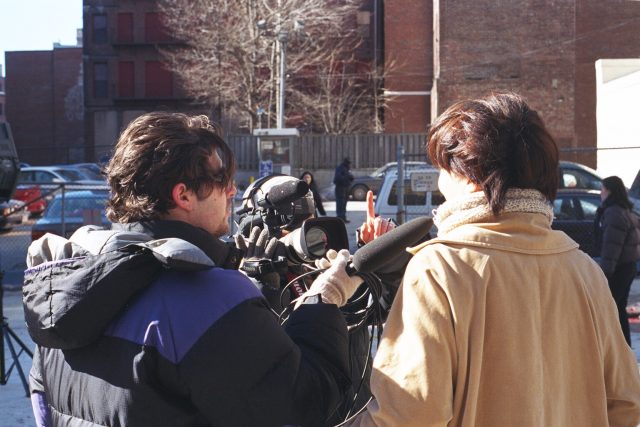We got our mid-term exams at the end of class last night. Five questions, answer three. I’m not really sure about two of them, though — they seem to be almost the same question:
- Why is the division of labor insufficient in itself to explain social order?
- Explain the idea of the “pre-contractual” in Durkheim’s sociology. Why is it important to the student of religion?
The division of labor theory (social choice theory) is insufficient precisely because it doesn’t take into account the pre-contractual. It seems that you could answer question three without reference to question one, but vice versa, no way. At least not a convincing answer.
I think I’ll answer that one (or rather, that pair) and in doing so, deal with the Hobbesian point of view. It seems to make a lot of assumptions. For example, he states that man’s natural state is one of war. Yet for war to exist, there must be more than one individual. And once there is more than one individual, these individuals must interact with each other — they must have a relationship. And to have a relationship that is even in the barest sense “functional” (and I don’t mean this in opposition to the sense common in popular psychology of the “dysfunctional,” e.g., unhealthy, relationship, but in a purely utilitarian sense), there must be some guidelines. And in creating these guidelines —
I’m not sure where that’s going. I’ll start again. Hobbes feels that man’s basic instinct is one of war. Yet that presupposes society. Hobbes seems somehow to forget that the natural state of humanity is social. To procreate two people are necessary; the resulting child is obviously the third party, and viola, we have the basic ingredients for society. Hobbes seems even to forget his own Christian account of the origins of man, with the explicit notion that God created Adam and Eve to work have a relationship with each other. God, according to Genesis, even lays down the basic nature of this relationship when “the LORD God said, ‘It is not good that the man should be alone; I will make him an help meet for him.’” God’s pre-determined role for women is a subservient one. Thus even according to Hobbes’ basic, existential start point, a relationship has been determined and humanity made “social.”
The fifth question is a little tricky:
- How is Durkheim’s idea of the sacred different from Max Weber’s idea of charisma? How are they similar?
No, I guess it’s not tricky — strangely worded, but not tricky. Durkheim’s idea of the sacred is a component of his overall sociological theory just as Weber’s charisma is a part of his. Sacred for Durkheim is that which is set apart, that which is out of the realm of “every-day life.” Weber’s charisma is a quality that encourages individuals or groups to step out of the “every-day world.”
This leads to a difference in the view of society. For Durkheim, the logical starting place is with the whole; Weber begins (at least concerning charisma) with the subjective individual. Berger discusses this a little in Invitation to Sociology.
The main problem that I see with these two points of view is that a Durkheimian theory doesn’t explain whence comes a charismatic person. This charismatic challenges the routine, daily reality in some fundamental way by presenting a different perspective, a different way to play the game. “It is written,” says establishment, to which the charismatic responds, “But I say unto you . . .” with the emphasis presumably on the first person singular pronoun. The question is, where did the charismatic get these ideas that will come tumbling out of his mouth after the iconoclastic, “But I say unto you”? Because the “whole” represents such a significant part in Durkheim’s theory — the pivotal, essential role, in fact — a Durkheimian has no way to explain these Weberian rebels running around, shouting down established authority.
And yet the two views are not completely incompatable. Once a charismatic leader gets enough followers, he (or, more rarely in the patriarchal Western world, she) becomes part of the establishment. His statements become the norm to which some “little snot-nosed punk” will start shouting, “But I say unto you!!”
In a sense this is similar to the Hegelian dialetic, with one crucial difference: Hegel’s system requires a goal, an Ideal, toward which thesis and antithesis are gradually moving. A Weberian dialetic (for lack of a better term) doesn’t need an Ideal (a destination) to make sense. It’s a sort of perpetual motion machine, with the antithesis actually coming out of the last sythesis. A graphic representation might show these differences clearly.
Since the charismatic leader comes from within society itself, there need not be any Ideal or Absolute guiding the process. (Such an interpretation could also be applied to Marx.)
I guess the other question I will answer is:
2) For Emile Durkheim “social facts are things.” Explain this statement drawing special attention to the role of constraint in Durkheim’s theories.
On occasion, I’ve been sitting in a room filled with people — both women and men — who are, in short, attractive by most contemporary Western standards: nice faces, shapely bodies, not too much flab. Perhaps it was a meeting of some small university group — the photography club, perhaps. As I sat there, I realized two things.
1.“Most of these people would admit, though not readily I’m sure, that they would be willing to have carnal relations with almost anyone in the room.”
2.“Physically speaking, there is absolutely nothing keeping us from stripping acting on these largely unacknowledged desires.
What did stop us from engaging in an impromptu orgy? Certainly nothing physical. Though this happened at a Christian college, the hand of God would not have suddenly materialized to keep us from even beginning to disrobe. There was nothing special about the gravitational forces on campus that would have prevented us from getting in the necessary/desired positions. In short, the only thing that stopped us was us.
Certainly if I had conducted a survey then and there, the explanations for our restaint would have been varied. “We’re Christian and we don’t do that!” Or, “What would people think if we were discovered?! Our reputations would be ruined!” The sources of these forms of restraint might be explained in various ways, but essentially they are all social. The Christian learned her Christianity from other people.
This constraint we all exercised, though, was as real to us as a brick wall in that it exerted a tremendious influence on our existential reality. Just as seeing a brick wall directly in front of us makes us either stop or turn to one side or the other, these moral objections would have reared up, unquestioned, had I proposed, “Hey, let’s not talk about photography. Let’s all have sex.” An orgy would have been just as unimaginable as walking through a brick wall. “We don’t walk through brick walls” is part of our everyday “knowledge” just as much as “We don’t have group sex.” It’s taken for granted, not even consciously acknowledged most of the time.
Here of course we’re entering into an analysis through the lens of sociology of knowledge.
It is in this way that “social facts are things.” Our morals (which we got from other people, ultimately — or society, if you will) keep us from having sex when we should be discussing shutter speeds and apertures just as surely as if we were all wearing chastity belts.
Conversely, it would be just as inappropriate and, to a degree, unthinkable to begin discussing the relatively new Nikon model F100 SLR camera in the middle of an intimate moment with one’s wife. These ideas belong to two different worlds, and when we’re in each world, we’re playing a different role. The criteria for and notion of acceptable behavior for these roles is one form that constraint takes. When I’m a lover, it’s simply ridiculous to discuss my life as a photography hobbyist.
Not a bad start.











































